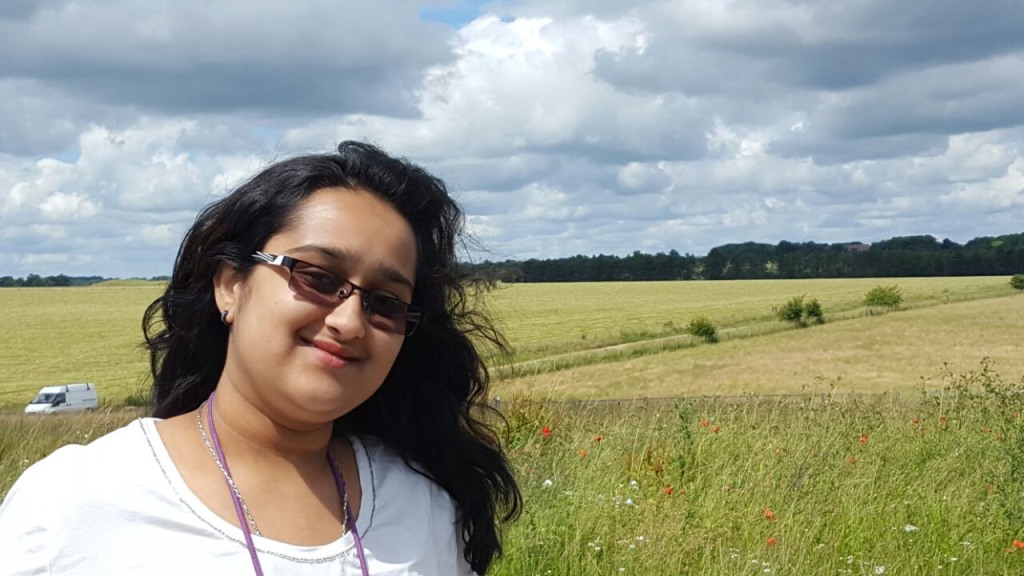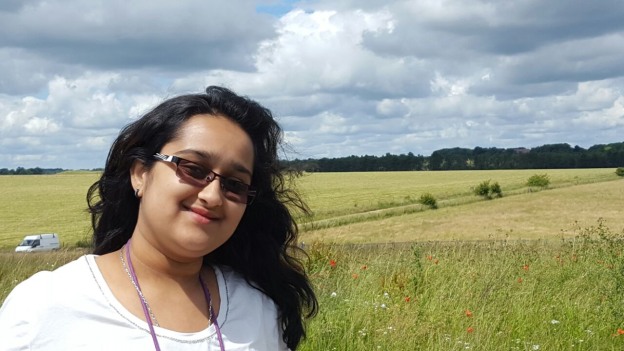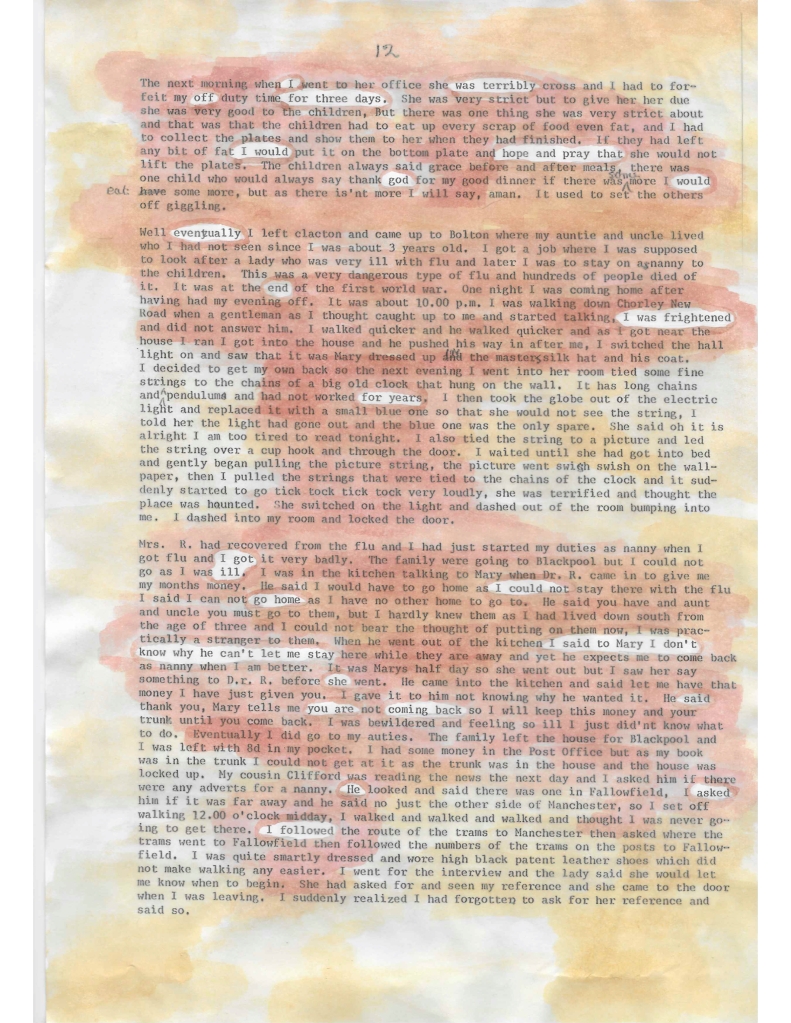One of a series of blog posts written by Brunel’s creative writing students, inspired by the Burnett Archive of Working Class Autobiographies.
Dear Ma,
I am extremely sorry for runnin away like that. I hope you forgive me. I wasn’t happy working in that shoe shop. The only option for me was to leave home. I am very happy now here in London, England. I must tell you that it was a very very long, scary and tedious journey. I learnd a lot of new things on my way and made many new friends too. After leavin home, I first went to Delhi with all the extra money I had saved from the shop. It wasn’t a lot but enough for me to leave the town. You know ma, I even shared a roof and a few meals with a Brahmin priest in Delhi. He was a very kind man and I felt terrible for lying to him. But I had no money and desperetly needed food and shelter.
Two days leter, I sumehow managed to reach Bombay with only 30 rupees in my pocket. I saw a huge red and black ship with the words S. S Rawalpindi docked in the harbour. I didn’t even know where it was going. I only knew that it was leaving soon and so I got on without a ticket. Once the ship left, I met a madam on the deck, whose name I now forget. She told me that she was workin as a maid for a rich sahib and that this was her seventh or something time goin to England. ‘It will all be ok’ she sayd. I no longer felt alone. I stood on the deck looking at the deep ocean when I realized that I was leaving the Indian soil. I was headin out for a journey into the outside world.
For the next few days, I slept outside on the cold, freezing deck with the other servants. I even ate with them in the kitchen where they served hot rice with curry. Thank god I didn’t suffer from seasickness, one less problem to worry about. However, I soon found out from Rahul, my friend, another servant that I also needed a passport. It was a small, rectangular blue coloured book which has your name and photo. He then helped me with the problem and warnd me not to get off the ship on any of the other ports. So, I listened to him and stayed on the ship. Once, the ship docked into the Thames Estuary, in London he managed to get me off the ship by saying I too was a servant of his master. He also wrote down his address on a piece of paper before we parted.
The air in London is so fresh and sweet like that purple flower what’s it called… Aah! Yes, lavender. The roads here are so clean, if it wasn’t for the cold, I would have even walked barefoot. Also, Ma, the people here don’t directly walk on the road like us, they walk on a small platform it’s called a pavement. It’s so strange, I can see the sun high up in the sky, yet it doesn’t burn on my skin as it does back in Bengal. Right now, I am workin in a cafe – a small coffee shop. It is in Woking. I am learnin somethin new in English every day. I dream to one day open a cafe of my own. I miss you Ma. I love you all very much.
Your loving son,
Faizur Rasul
© Kashmira Shirwadkar, 2020. All rights reserved.
‘A letter back home’ was inspired by Faizur Rasul, Bengal to Birmingham (2:619) in the Burnett Archive of Working-Class Autobiography, special collections, Brunel Library, Brunel University London. It was also partially inspired by my own experiences, as I too once was an immigrant from India.
Author’s Note:
I was specifically searching the Burnett Archive for a piece that I could personally relate to, and that’s when I found Faizur Rasul’s memoir Bengal to Birmingham. I chose to write in the form of a letter by imagining myself in the shoes of the writer. If he ever thought of writing a letter home what would it be like? Having known that he was an Indian immigrant who was still improving his English, I looked for words in Rasul’s autobiography that were presented in broken English or non-standard English. This autobiography also reminded me of a short play called Sammy! the word that broke an empire by Pratap Sharma that I had studied as an undergraduate. Both works are from a similar period, India during British rule, and tell of the tedious journey of a middle-class Indian immigrant to a foreign country. That is what piqued my interest and urged me to write this piece.

Kashmira Sameer Shirwadkar was born in Mumbai in 1997. She is an avid reader and keen writer who has completed her undergraduate degree in English Literature and History from the University of Mumbai. Kashmira’s article ‘Mumbai, a melting pot of cultures’ was published on EvoNews on 28th July 2017. She has completed a short course in creative writing for adults from the city academy, and is currently studying for a master’s degree in creative writing at Brunel University London. You can find her stories @Kash2509, #untold fiction stories or by simply following her page K_ashmira_shirwadkar on Facebook and Instagram.



